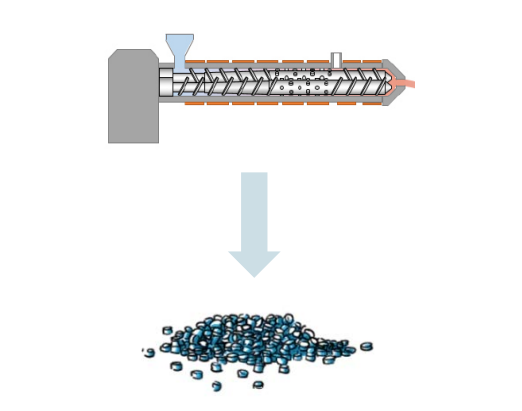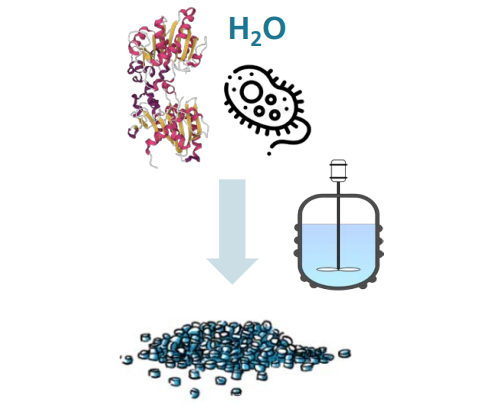Due to its bio-based nature and biodegradability, polybutylene succinate (PBS) is a sustainable alternative to conventional polyolefins, which can be persistent in the environment due to their long degradation time. The LoopPBS project is the first to demonstrate a new type of chemical recycling of PBS and the processing of this recycled PBS (rPBS).


Technical demand:
- Thermo-mechanical damage to the molecular chain structure of polymers
- Mixed fractions despite the same type of plastic
- Only a limited proportion of recyclate can be used
Scientific-technical solution:
- Hydrolysis process + enzymatic / microbial depolymerisation into monomers
- Demonstration of the re-synthesis of rPBS
- Industrial processing of rPBS